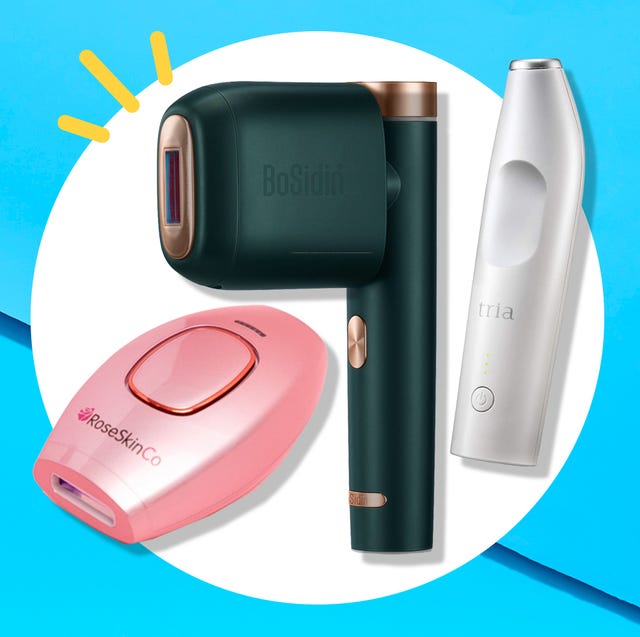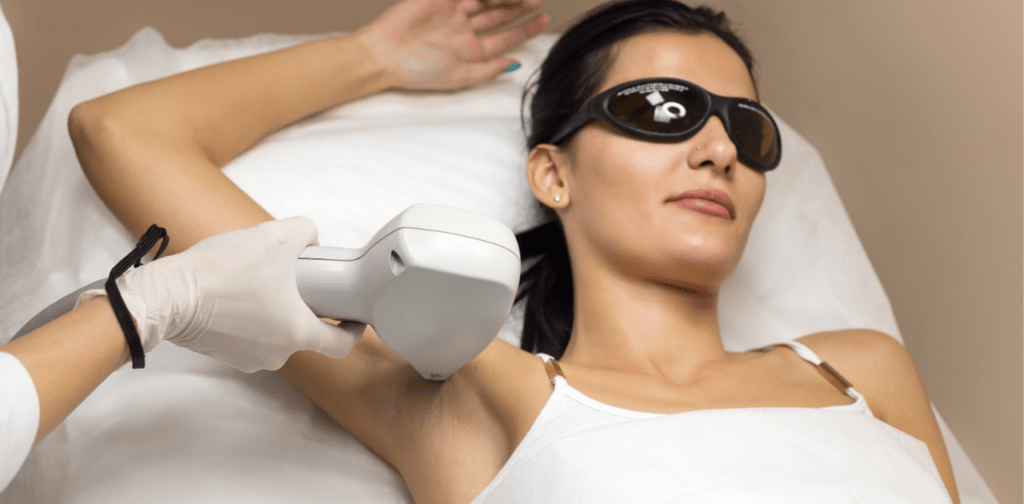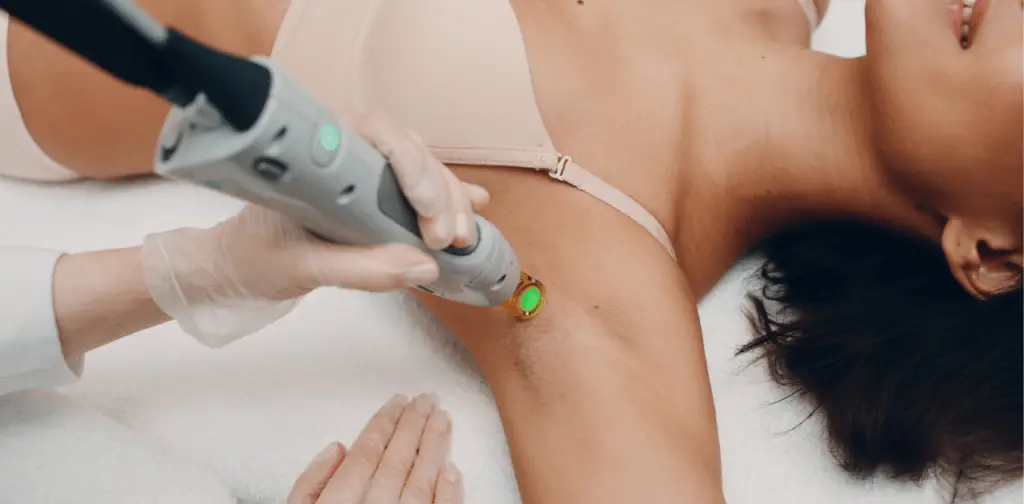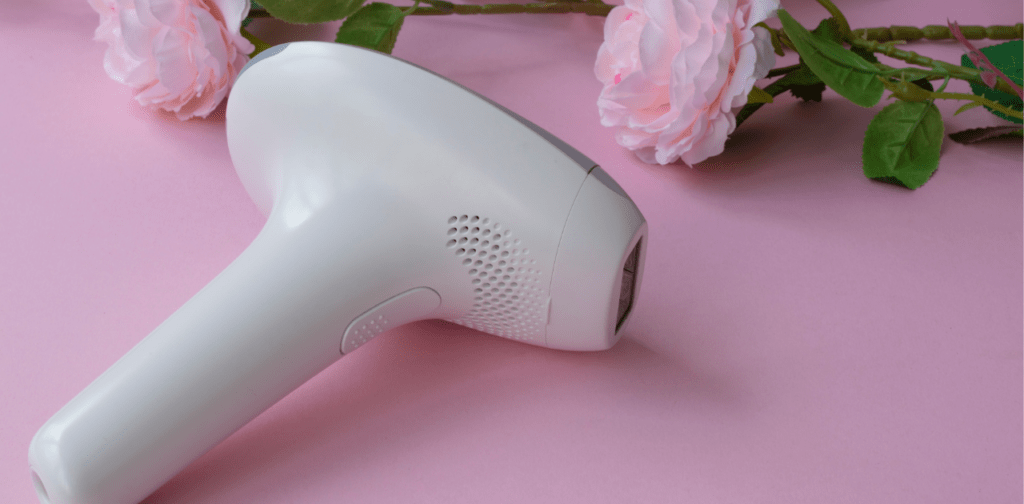Laser hair removal is one of the most popular cosmetic procedures in the world. It’s a safe and effective way to remove unwanted hair from any part of your body.
If you’re considering laser hair removal, you may be wondering if it’s worth the investment.
The answer depends on a few factors, including your budget, how much hair you want to remove, and your individual skin type.
In general, at-home laser hair removal devices are a fraction of the cost of professional treatments. They’re also much more convenient since you can do them in the comfort of your own home.
However, at-home laser devices are not as powerful as professional lasers and may not be suitable for everyone. If you have dark skin or coarse hair, you may need to opt for professional treatments.
If you’re considering at-home laser hair removal, you might be wondering if it’s worth the investment. After all, professional treatments can be quite pricey. But there are a few things to consider before making your decision.
For one, at-home laser hair removal devices have come a long way in recent years and are now much more effective than they used to be. So if you’re looking for results that are comparable to what you’d get from a professional treatment, at-home laser hair removal is definitely worth considering. Another thing to keep in mind is that professional treatments can be quite time-consuming (and expensive), so if you’re looking for a convenient and affordable solution, at-home laser hair removal is definitely the way to go.
So, what’s the bottom line? If you’re looking for an effective and affordable way to remove unwanted body hair, at-home laser hair removal is definitely worth considering.

Best Laser Hair Removal At-Home
Laser hair removal is a popular method for removing unwanted hair, and there are many at-home devices available that can help you achieve similar results to what you would get from a professional treatment. In order to find the best laser hair removal device for at-home use, it is important to consider a few factors such as the type of laser, the wavelength, the pulse duration, and the spot size. Additionally, you will want to make sure that the device is FDA-cleared and has been tested by dermatologists.
Below, we have compiled a list of some of the best laser hair removal devices for at-home use based on these criteria.
If you are looking for an FDA-cleared laser hair removal device that has been tested by dermatologists, then the Tria Beauty Hair Removal Laser 4X is a great option. This device uses diode lasers with an 810nm wavelength to target dark hair follicles.
It also has a pulse duration of up to 30 milliseconds and a spot size of 3 cm².
Another great FDA-cleared laser hair removal device that has been tested by dermatologists is the Silk’n Infinity . This device uses HPL (Home Pulsed Light) technology with a wavelengths between 520-1200nm.
It also has a pulse duration of up to 6 seconds and a spot size of 4 cm².
If you are looking for an at-home laser hair removal device with a larger spot size, then the Philips Lumea Prestige IPL Hair Removal System may be right for you. Thisdevice uses Intense Pulsed Light (IPL) technology with wavelengths between 430-1200nm.
It also has apulse durationof up top 2 seconds and aspot sizeof 9 cm².

Credit: www.womenshealthmag.com
Does at Home Laser Hair Removal Work As Well As Professional?
When it comes to laser hair removal, there are a lot of factors that come into play in order to determine how effective the treatment will be. This includes the type of laser used, the wavelength of the laser, the pulse duration, the spot size and more. So, when it comes to at-home laser hair removal devices, they may not be as powerful or have as many features as professional devices – but this doesn’t mean they don’t work.
At-home laser hair removal devices use lower levels of energy than professional devices, so they aren’t able to penetrate as deeply into the skin. This means that they’re less likely to cause side effects like burns or blistering, but it also means that they may not be as effective at removing all of the hair. Professional devices can also be adjusted to each individual’s skin type and hair color, which further increases their effectiveness.
So, if you’re looking for long-term results with fewer treatments needed overall, then professional laser hair removal is definitely the way to go.

Do at Home Laser Hair Removal Tools Work?
Are you considering at-home laser hair removal, but aren’t sure if it actually works? You’re not alone—laser hair removal is one of the most popular cosmetic procedures, but there’s still a lot of misinformation out there about how well it works, especially when you try to do it yourself. Let’s start with the basics: laser hair removal uses concentrated light to heat up and destroy hair follicles.
The pigment in the follicle absorbs the light, which then converts to heat and destroys the follicle. This process can be done on any area of the body where unwanted hair grows, including the face, legs, arms, bikini line, and more. Laser hair removal has been around for over two decades now, and during that time it has become much more effective and safe.
In fact, laser hair removal is now FDA-approved for permanent hair reduction. However, even though laser hair removal is very effective, it does require multiple treatments to achieve optimal results—usually 6-8 sessions spaced 4-6 weeks apart. And while you can certainly find at-home laser devices these days (more on that later), going to a certified professional for your treatments will give you the best results.
Now let’s talk about at-home laser devices. These devices use lower levels of energy than what you would find at a professional clinic, so they are not as effective at destroying hair follicles. That said, they can still be helpful in reducing unwanted hair growth if used regularly over time.
Just don’t expect miracles from an at-home device—it’s simply not going to give you the same results as professional treatments. If you do decide to give an at-home device a try, make sure to do your research first and choose a reputable brand like Tria or Silk’n Flash&Go. And always follow the instructions carefully to avoid any skin irritation or other side effects.
So there you have it—everything you need to know about whether at-home laser devices really work for removing unwantedhair growth effectively!

What are the Risks of at Home Laser Hair Removal?
Laser hair removal is becoming an increasingly popular method for removing unwanted hair, but it’s important to be aware of the potential risks before undergoing treatment. One of the most common risks associated with laser hair removal is skin burns. This can occur if the laser is used incorrectly or if the person being treated has sensitive skin.
Burns can range from mild to severe, and in some cases, they may require medical attention. Another risk is that of pigment changes in the skin. This can happen when the laser light targets melanin in the skin, causing it to darken or lighten.
In some cases, this change can be permanent. Eye damage is another potential risk of laser hair removal. This is why it’s important that lasers are only used by trained professionals who know how to properly protect a person’s eyes during treatment.
Finally, there is always a small risk of infection whenever the skin is broken (as can happen with any type of injury). However, this risk can be minimized by making sure that the treatment area is clean and using sterile equipment.

Are Home Laser Hair Removal Permanent?
No, home laser hair removal is not permanent. While it can be an effective way to reduce the amount of unwanted hair, it does not permanently remove hair follicles. This means that new hair can grow back after treatment.
Is At-Home Laser Hair Removal Effective? | Dr Sam in The City
Frequently asked Questions (FAQs)
Does at Home Laser Hair Removal Work As Well As Professional?
When it comes to laser hair removal, at-home devices may not be as powerful or feature-rich as professional devices. At-home devices use lower energy levels, which may not penetrate as deeply into the skin. While this reduces the risk of side effects, it may also make them less effective at removing all hair. Professional devices can be tailored to individual skin types and hair colors, enhancing their effectiveness. For long-term results with fewer treatments, professional laser hair removal is recommended.
Do at Home Laser Hair Removal Tools Work?
Laser hair removal, using concentrated light to destroy hair follicles, is a popular cosmetic procedure. It is FDA-approved for permanent hair reduction and requires multiple sessions for optimal results. At-home laser devices have lower energy levels than professional clinics, making them less effective but still potentially helpful in reducing hair growth with regular use. Choosing reputable brands and following instructions is crucial to avoid skin irritation or other side effects.
What are the Risks of at Home Laser Hair Removal?
While laser hair removal is popular, it’s essential to be aware of potential risks. Common risks include skin burns, ranging from mild to severe, which may require medical attention. Pigment changes in the skin can occur when laser light targets melanin, potentially causing permanent changes. Eye damage is a risk if lasers are not used by trained professionals. Additionally, there’s a small risk of infection whenever the skin is broken during treatment, but this can be minimized with proper hygiene and sterile equipment.
Are Home Laser Hair Removal Permanent?
No, home laser hair removal is not permanent. While it can effectively reduce unwanted hair, it does not permanently remove hair follicles, meaning that new hair can grow back after treatment.
Conclusion
Laser hair removal is a popular choice for those looking to remove unwanted hair, but it can be expensive. At-home laser hair removal devices are becoming more popular as they become more affordable, but are they worth it? There are a few things to consider before making the investment in an at-home laser hair removal device. The first is the cost. At-home devices typically cost less than professional treatments, but they still require an upfront investment. Second, consider your skin type and color.
